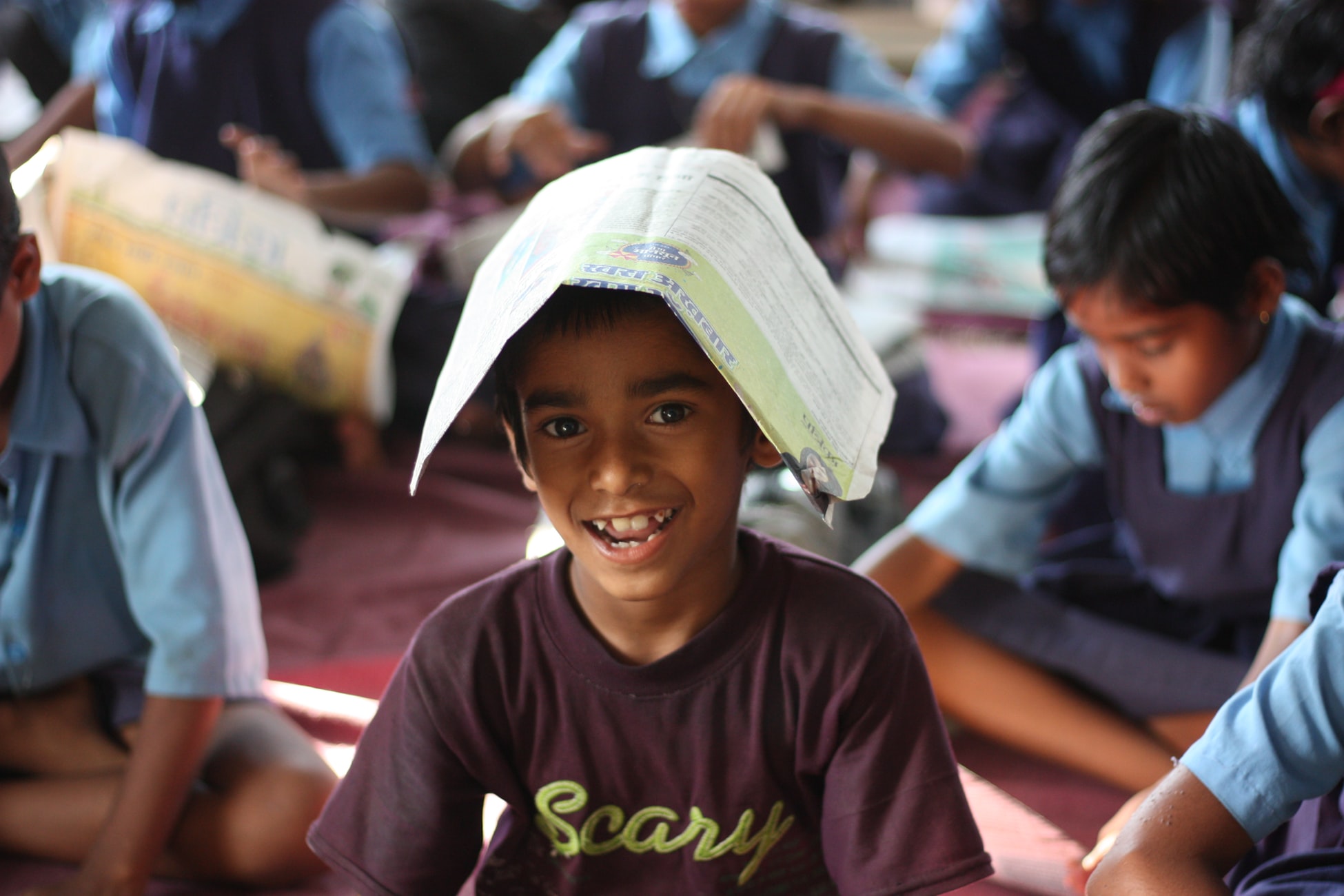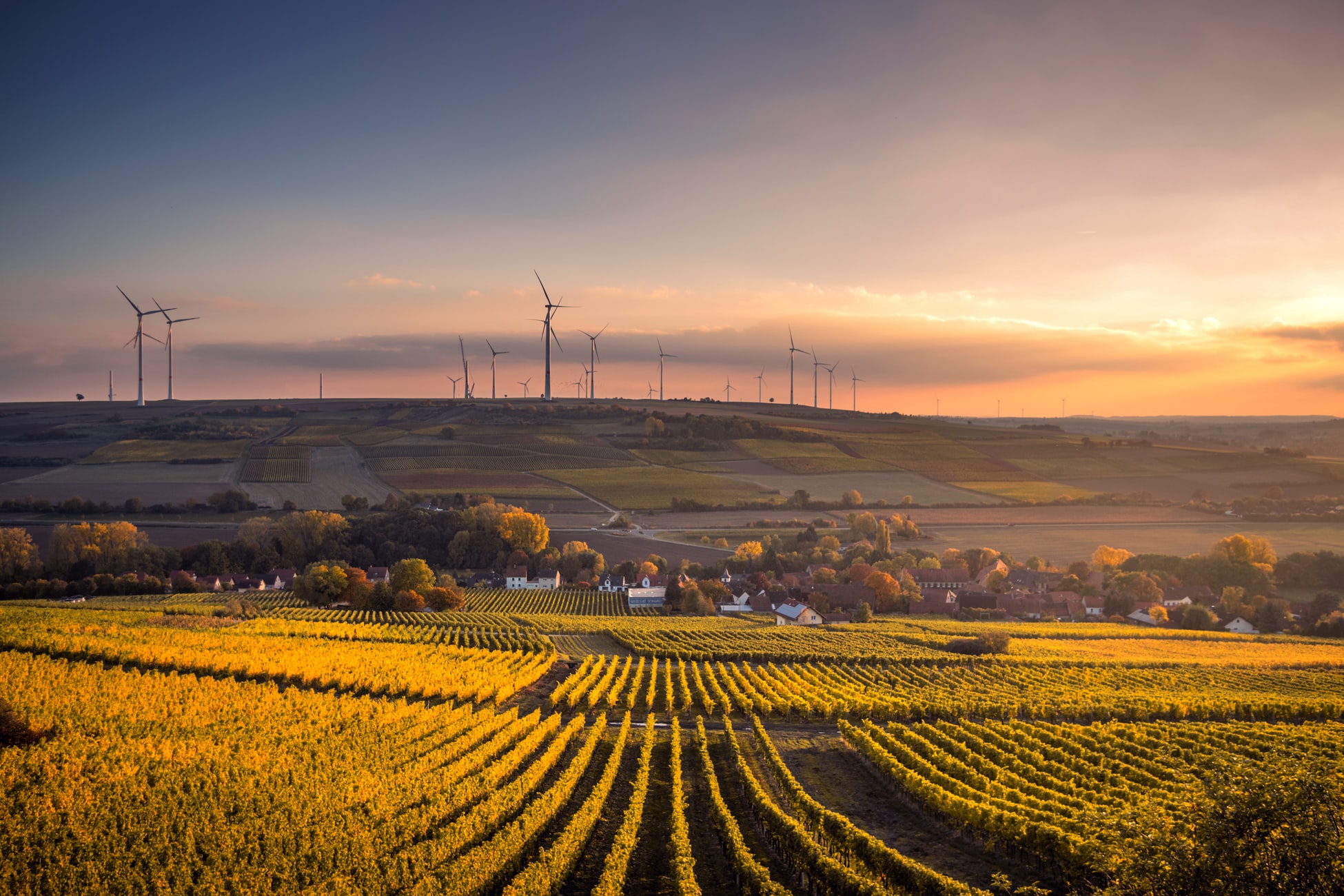
- Inspiring People -
- 9mins -
- 197 views
19 Fab Facts & Positive News Stories from 2019 You May Have Missed
Check out these 19 fantastic news items from 2019 that we didn’t see on traditional media.
19 Fab Facts & Positive News Stories from 2019 You May Have Missed
Among the constant barrage of doom and gloom from the mainstream media, you may have missed these other uplifting stories of conservation, better health, rising living standards, tolerance, peace, cleaner energy and environmental stewardship that are happening all the time all over the world. As many of these stories don’t make it to our social media feeds, we might easily get a skewed or negative view of the world and what’s really happening. But at BrightVibes we like to focus on what’s going right, not what’s going wrong, so check out these 15 fantastic news items from 2019 to inspire you into the new year.

2019 Fab facts:1–5
1. Humpbacks bounce back. A key population of humpback whales is in recovery after it was pushed to the brink of extinction by centuries of human exploitation, according to a new study. Western South Atlantic humpbacks were reduced to a few hundred individuals in the 1950s, after once totalling some 27,000. However, efforts to preserve the animal have paid off, with current numbers estimated to stand at around 25,000 — about 93% of their pre-exploitation levels — the study published by the Royal Society reveals. Learn more…
2. Bus stops to bee stops. In the Dutch city Utrecht 316 bus stops now have a green roof. They do not only look great, they also help capture fine dust, storage of rainwater and provide cooling in the summertime. It is one of many measures aimed at a.o. improving Utrecht’s air quality. Did you know that after smoking, an unhealthy environment (including bad air quality) is the second cause of diseases in the Netherlands? Learn more…
3. Children’s lives have improved globally. Save the Children’s 2019 Global Childhood Report showed that in the last 20 years, children’s lives have improved in 173 out of 176 countries. Compared to 2000, today there are:
- 4.4 million fewer child deaths per year
- 49 million fewer stunted children
- 130 million more children in school
- 94 million fewer child labourers
- 11 million fewer girls forced into marriage or married early
- 3 million fewer teen births per year
- 12,000 fewer child homicides per year.
4. In Rome you can pay metro train tickets with plastic bottles. Commuters in Rome who recycle plastic bottles at metro stations can accumulate credits for the purchase of bus and metro tickets through apps on their phones. For each plastic bottle recycled, commuters will receive a credit of five cents, meaning if they recycle 30 bottles they receive a free €1.50 ticket. Over 350,000 bottles have been recycled. Learn more…
5. Ethiopia smashed the world record for tree planting. Led by its Prime Minister, Ethiopians planted 353 million trees in 12 hours. The planting is part of a national “green legacy” initiative to grow 4bn trees in the country by encouraging every citizen to plant at least 40 seedlings. The project aims to tackle the effects of deforestation and climate change in the drought-prone country. According to the UN, Ethiopia’s forest coverage was just 4% in the 2000s, down from 35% a century earlier. Learn more…

2019 fab facts 6–10
6. Tiger numbers on the rise. India reported that its population of tigers has risen by over a third since 2014. A number of government initiatives to streamline tiger conservation – including a ban on hunting and awareness drives in villages – are said to be behind the increase of the population. Meanwhile in Siberia, an unprecedented collaboration between China and Russia has paved the way for a new transnational park for the Amur leopard and the Siberian tiger. The remarkable comeback is largely due to shared work between China and Russia, cemented in February when the park administrations on both sides of the border signed a memorandum of understanding for further cooperation.
7. The Ocean Cleanup’s fleet of solar powered interceptors to clean the world’s dirtiest rivers. The Interceptor™, under development by The Ocean Cleanup since 2015, complements the organisation’s founding mission by attacking the flow of plastic garbage at its source, the world’s vast network of rivers. The Ocean Cleanup aims to tackle the 1,000 most polluting rivers, responsible for about 80% of ocean plastic pollution, before the end of 2025. They have so far built systems in Indonesia, Malaysia, Vietnam and Dominican Republic. Learn more…
8. The E.U.’s greenhouse gas emissions have decreased 23%, whilst its GDP increased 62% compared to 1990. EU greenhouse gas emissions declined by 2% in 2018 and reached their lowest level since 1990. In 2018, emissions were 23% below the 1990 level, while the GDP had increased by 61%. Implementation will have to be accelerated significantly, the annual EU Climate Action Progress Report adopted today concludes, to reach 2030 targets and for the EU to become climate-neutral by 2050. Learn more…
9. Mindfulness and meditation part of the curriculum in 370 schools in England. In 370 schools across England, children will be taught how to meditate, techniques for muscle relaxation, and breathing exercises for mindfulness. The secondary school students will also learn about awareness and how to increase this in their everyday lives. The program is being conducted under a mental health study that the British government is running up until 2021. Learn more…
10. Malaria cases are falling worldwide. The number of malaria infections recorded globally has fallen for the first time in several years, according to the World Health Organization (WHO), which published its annual World Malaria Report on 4 December. Algeria and Argentina officially eliminated malaria this year, and the WHO said that in the last eight years, malaria infections in Cambodia, China, Laos, Myanmar, Thailand and Vietnam dropped by 76%, and deaths fell by 95%. India also reported a huge reduction in malaria, with 2.6 million fewer cases in 2018 than in 2017. Learn more…

2019 fab facts 11–15
11. In 2019 A new Ebola vaccine is working miracles, reducing mortality rates from 70% to as low as 6%. In the Democratic Republic of the Congo, about two-thirds of people who are treated with either of two new antibody-based drugs, REGN-EB3 or mAb114, will survive Ebola infection. Until now, about two-thirds of people infected with Ebola would die. Learn more…
Also 11. 🤷🏽♂️ The proportion of people in extreme poverty fell from 1.9 billion in 1990 to 610 million in 2018. The proportion of the population in extreme poverty has fallen from 36% in 1990 to 8.6% in 2018 (8% by ODI estimates). Similarly, the poverty headcount has fallen from nearly 1.9 billion in 1990 to about 610-650 million in 2018. Learn more…
12. Tolerance towards others is improving almost everywhere. A new survey across 167 countries said that tolerance towards LGBTQIA+ people has risen in almost every region of the world in the last decade. Social tolerance toward minority groups increased in 111 of 167 countries over the last decade, and across every region except for Eastern Europe and sub-Saharan Africa, the survey found. The rise in acceptance of LGBT people was particularly marked, rising from about one in four people expressing acceptance a decade ago to almost a third in the latest report.
13. One huge piece of news you probably didn’t hear about is India’s extraordinary sanitation drive. In the last five years, 90 million toilets have been built, 93% of households now have access, and 500 million people have stopped defecating in the open. Furthermore, 95% of villages surveyed were found to have minimal litter and minimal stagnant water. Learn more…
14. Green energy now cheaper than fossil or nuclear. Lazard, the industry’s benchmark, says that the cost of new wind and solar in 2019 dropped below the cost of keeping many of the world’s existing coal and nuclear power plants running. As Ramez Naam says, this year was well and truly the point at which we entered the next phase of the energy revolution. The question now is no longer “is it cheaper?” The question from here on is “how fast can we deploy?” Learn more…
15. Since 2017, Fifty coal-fired power plants in the US have shut, whilst 110,000 renewable energy new jobs were created. For the first time, the United States produced more energy from renewable sources than from coal, according to new figures from the US Energy Information Administration. Hydroelectric dams, solar panels, and wind turbines generated 68.5 million megawatt-hours of energy during the month of April 2019, compared to 60 million for coal. Learn more…

2019 fab facts 16–20
16. The global suicide rate is dropping—millions saved. At a global level, suicide has declined by 29% since 2000. Among most Western countries, rates have been falling for decades. In Britain, for instance, the rate peaked in 1934, during the Depression. But elsewhere, the decline has happened more recently. China’s rate started to come down in the 1990s; in Russia, Japan, South Korea and India rates have all fallen significantly in the past decade. Western Europe’s rate is still declining slowly. America is the big exception: its rate has risen by 18% this century. Twenty years ago, America’s rate was half China’s. Now it is twice China’s. But the net gain is still huge. The drop in the global rate has saved 2.8m lives since 2000. Three times as many as have been killed in battle in that period. Learn more…
17. The international homicide rate has dropped 20% since 1990. Researchers from the University of South Florida (USF) and other institutions studied data from 1990 to 2015 on 126 countries that made up 90 percent of the world’s population. In most of these nations, people ages 15-29 are responsible for a large proportion of homicides. However, this age group is shrinking, now making up 21 percent of the global population. Their study published in PLOS ONE finds that this decline in the size of the youth population – a global demographic trend – strongly correlates with international homicide trends. Learn more…
18. In Germany, 400,000 refugees have integrated far quicker than expected into the job market. The Institute for Employment Research has revealed that approximately 400,000 refugees will be in work before the end of the year. The agency is "quite satisfied" with migrants’ assimilation into the labor market. The institute, the research arm of the Federal Employment Agency, compared the integration of the recent influx of refugees to those fleeing the balkan conflict of the 1990s. Learn more…
19. Poaching in Africa in decline. In Kenya, poaching rates have dropped by 85% for rhinos and 78% for elephants in the last five years. The downward trend largely thanks to enhanced wildlife law-enforcement efforts and investment in conservation. Meanwhile in South Africa, the number of rhinos killed by poachers fell by 25%, the fifth annual decrease in a row. The decline in rhino deaths is “a confirmation of the commitment and dedication of the men and women working at the coalface to save the species,” said Minister of Environmental Affairs Nomvula Mokonyane, who is also known as Mama Action. Across the border in neighbouring Mozambique, one of Africa’s largest wildlife reserves went an entire year without losing a single elephant. The reserve’s new rapid-intervention police force is an elite unit that is better armed than the regular rangers, and has already established a fearsome reputation.
We are not ignoring the huge challenges we face. We share these stories of progress to show what can be done… It’s an incentive to do more & better to make our planet a more happy, social and sustainable place.
Selected from ’99 GOOD NEWS STORIES YOU PROBABLY DIDN’T HEAR ABOUT IN 2019’ from our friends over at FutureCrun.ch


